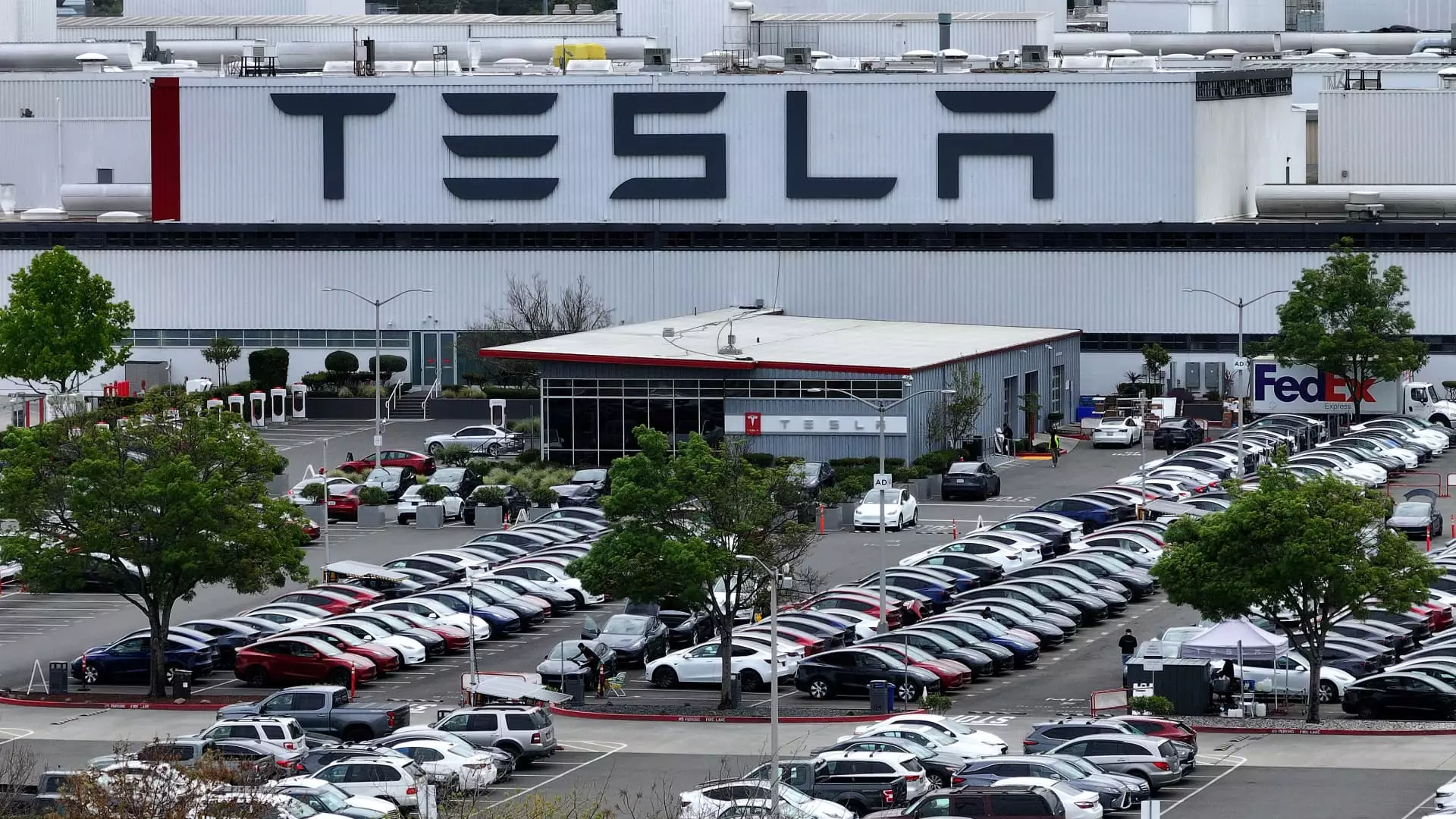Tesla, the renowned electric vehicle company, is currently facing a lawsuit from the nonprofit Environmental Democracy Project. The lawsuit alleges that Tesla has been consistently failing to comply with the Clean Air Act at its assembly plant in Fremont, California. According to the environmental group, Tesla has violated the law hundreds of times since January 2021, resulting in harmful pollution being emitted into the surrounding neighborhoods. This ongoing failure to meet environmental regulations raises serious concerns about Tesla’s commitment to sustainability.
Despite Tesla’s emphasis on the environmental benefits of driving electric vehicles, its manufacturing practices have come under scrutiny by environmentalists. The company’s inclusion on the 2023 Toxic 100 Air Polluters list, compiled by the Political Economy Research Institute, is a clear indication of the environmental impact of its operations. Moreover, the Environmental Protection Agency fined Tesla $275,000 in 2022 for its failure to properly monitor and minimize air pollutants at the Fremont facility. These incidents highlight a disturbing pattern of environmental negligence on the part of Tesla.
In addition to the current lawsuit, Tesla has faced legal challenges related to its handling of hazardous waste materials in California. The company was sued by 25 counties in the state earlier this year, prompting a swift settlement. Moreover, environmentalists in Germany have raised concerns about Tesla’s forest clearance practices and water consumption for a factory near Berlin. These legal battles underscore the broader environmental impact of Tesla’s global operations and the need for greater accountability in its sustainability efforts.
The lawsuit against Tesla in California highlights the serious public health risks posed by the company’s environmental violations. Residents and employees in the surrounding area have been exposed to elevated levels of air pollution, including nitrogen oxides, arsenic, cadmium, and other harmful chemicals. The Bay Area Air Quality Management District has accused Tesla of allowing unabated emissions in Fremont, which can have detrimental effects on public health and the environment. These findings raise urgent concerns about the immediate impact of Tesla’s manufacturing practices on local communities.
Despite these environmental and legal challenges, Tesla has remained relatively silent on the issue. The company did not respond to requests for comment on the lawsuit or the broader concerns raised by environmental regulators. Tesla’s CEO, Elon Musk, has previously downplayed the importance of environmental activism, referring to climate activists as “communists” and sharing derisive memes targeting them on social media. This dismissive attitude towards environmental concerns only serves to further alienate Tesla from key stakeholders and hinder potential progress in addressing its environmental impact.
The environmental impact of Tesla’s manufacturing practices is a cause for serious concern. The ongoing violations of environmental regulations, legal battles over hazardous waste handling, and public health risks posed by air pollution all point to a systemic failure in Tesla’s sustainability efforts. As a leading player in the electric vehicle market, Tesla has a responsibility to prioritize environmental stewardship and ensure that its operations are in line with industry best practices. Failure to address these issues could have far-reaching consequences for both the company and the broader community. It is imperative that Tesla takes immediate and decisive action to rectify its environmental shortcomings and regain the trust of stakeholders.

